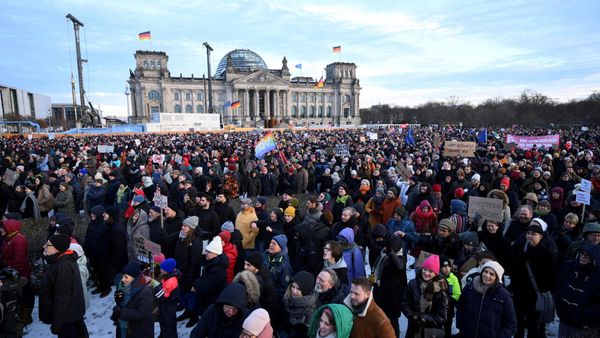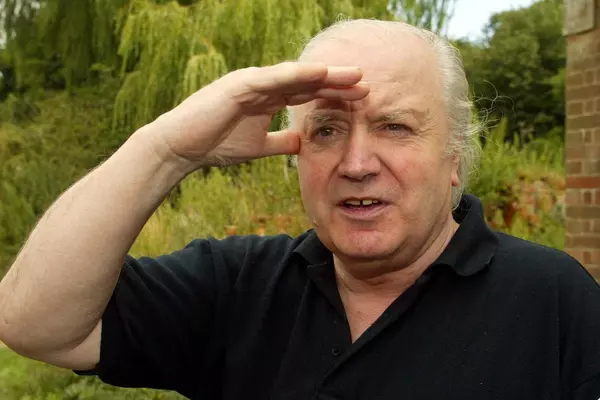
After a long campaign, no candidate in the Colombian presidential election has managed more than 50% of the popular vote, meaning a runoff will be required between the top two candidates on June 19.
The pair — left-wing former guerrilla fighter candidate Gustavo Petro with just over 40% of the vote and populist former mayor of Bucaramanga Rodolfo Hernández with 28% — have come to represent deep divisions in Colombian society, as well as the global shift away from politics as usual. And the eventual winner could have massive repercussions for energy markets and climate change.
The election comes after a quarantine that has deepened inequalities in Colombian society and a flourishing protest movement that saw masses of largely young Colombians taking to the streets last year.
Who are the top two?
In 1977, Petro, aged 17, joined the guerrilla 19th of April Movement and in 1985 did prison time for illegal possession of arms. By 1988, the group was moving into mainstream political participation. Under the banner of the party they formed (the M-19 Democratic Alliance), Petro was elected as a senator in 1991. Since then he’s cycled through various parties and roles — including a period as Bogota’s mayor from 2012 to 2015.
During this term, he was briefly sacked and banned from political activity for 15 years over alleged mismanagement of the capital’s rubbish collection service. Petro described it as a “right-wing coup” by the Inspector General’s Office; thousands marched in support of him and he was eventually reinstated.
This is his third run at the presidency — in 2010 he came fourth, and in 2018 he made it to the runoff, eventually beaten by right-wing candidate Iván Márquez.
Hernández is a construction millionaire who, until the campaign, was little known outside Bucaramanga, the city where he was mayor from 2016 to 2019. Hernandez spurned traditional campaigning, held few rallies or debates, and largely got his message out on social media platforms like TikTok.
Petro and his running mate, Afro-Colombian activist Francia Márquez, were well ahead in the polls throughout the campaign, but the late appearance of Hernández tightened the vote.
Polls predicted that in a second round, Petro would have beaten other candidates like conservative former Medellin mayor Federico Gutiérrez or centrist Sergio Fajardo. But some surveys place Petro in a dead heat with Hernández.
No more Petro dollars
Petro has pledged to halt oil exploration. Oil and coal account for about half of Colombia’s exports, and Petro said in an interview earlier this year that continuing to base their economy on this, ignoring climate change, would be the “politics of death”. He said he would phase out these industries in favour of a tourism-driven economy and would convert state oil company Ecopetrol SA into a green energy producer. Such policies would come at a time when the nation is enjoying the benefits of a surge in energy prices following the Russian invasion of Ukraine.
He wants higher taxes for the wealthiest Colombians on land holdings and dividends, and has pitched a public sector job guarantee for anyone out of work. Unsurprisingly, high-profile business figures have united on an “anyone but Petro” ticket, but in a country where 40% of the population live in poverty, he’s had serious cut-through.
Hernández, though right-leaning, has been popular for similar reasons — namely widespread disenchantment with mainstream politics. His politics are a populist melange of left and right; he says he’s in favour of same-sex marriage, legalisation of marijuana and voluntary assisted dying, but also believes women shouldn’t have a role in politics or managerial roles: “It is good for them to make comments and to provide support from their home. But people don’t like to see women involved in government,” he said a few days ago.
Hernández’s policy platform is not as detailed as Petro’s, but his broad message has been one of anti-corruption (despite not necessarily being 100% clean in that regard). It’s been noted that his fondness for profane take-downs of his opponents, and his emphasis on his record as a successful businessman who can take on the elites and get things done, have a distinct Trump energy.
A broader shift
Elsewhere, Chile and Peru elected leftist leaders in 2021, with a similar breakdown between the two candidates. Free Peru party leader Pedro Castillo, a Stetson-sporting socialist and former teacher, narrowly beat out hard-right dynasty halter Keiko Fujimori. After a divisive campaign, Fujimori made unsubstantiated claims of voter fraud.
And in December, Gabriel Boric, a former student activist who came to prominence during anti-government protests over the impacts of the COVID pandemic, became Chile’s youngest-ever president at 35. He beat out José Antonio Kast, a far-right candidate who ran on a free market, law and order, anti-immigration and socially conservative platform. A reminder, as if one were needed, that Australia is far from alone in having vast swaths of the public reject the major parties (albeit in extremely different circumstances).
We will have a chance to see if South America’s shift to the left continues soon. Brazil’s far-right, hard-man leader (and sufferer of just a huge number of health problems) Jair Bolsanaro goes to the polls in October. After his catastrophically reckless handling of the pandemic, Boslanaro’s popularity is plummeting, and polling puts his left-wing opponent (former president Luiz Inácio Lula da Silva) at 46% support as opposed to Bolsanaro’s 32%.







